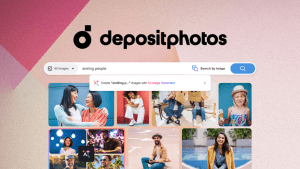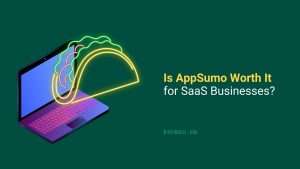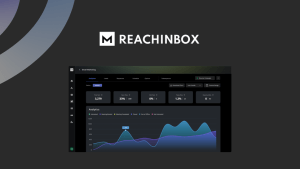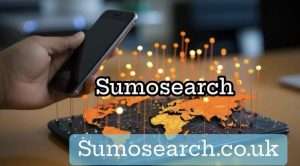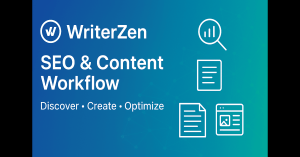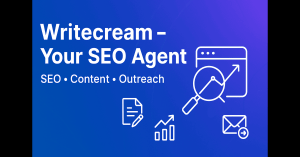Email marketing helps IT companies reach their target audience and generate leads effectively. It boosts client engagement and promotes services.
Email marketing is a powerful tool for IT companies aiming to enhance customer relations and drive business growth. By crafting personalized and relevant content, IT firms can capture the attention of potential clients and nurture existing relationships. Effective email campaigns can highlight new products, share industry insights, and offer solutions to common challenges faced by clients.
With a strategic approach, IT companies can use email marketing to build brand loyalty, increase website traffic, and improve conversion rates. The key lies in delivering value through well-designed emails that resonate with the audience, ensuring consistent engagement and measurable results.
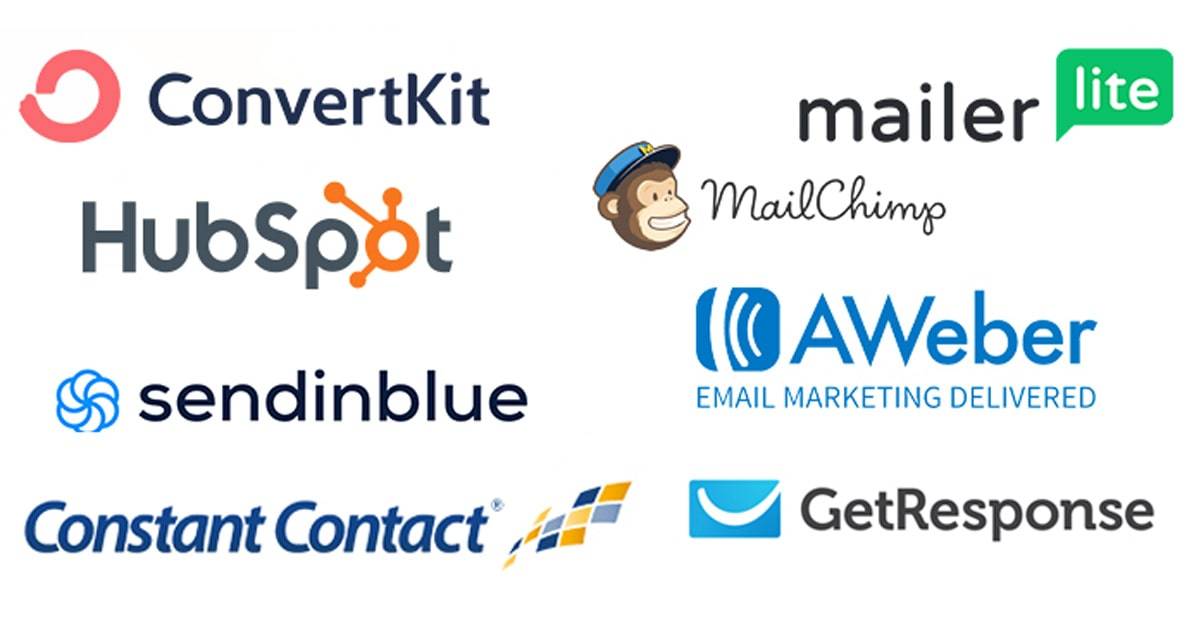
Credit: www.globaldatabase.com
Introduction To Email Marketing
Email marketing is a vital tool for IT companies. It helps them reach their audience directly. This method is both cost-effective and efficient. IT companies can share updates, promotions, and valuable content through emails. This keeps their audience engaged and informed.
Importance For It Companies
Email marketing holds significant importance for IT companies. Here are some key reasons:
- Direct Communication: Emails allow direct communication with clients.
- Cost-Effective: It’s cheaper than many other marketing methods.
- Personalization: Emails can be tailored to individual needs.
- Measurable Results: Track the success of email campaigns easily.
Current Trends
Staying updated with current trends is crucial. Here are some trends in email marketing for IT companies:
- Automation: Automated emails save time and ensure timely communication.
- AI Integration: AI helps in creating personalized email content.
- Interactive Emails: Adding interactive elements increases engagement.
- Mobile Optimization: Ensure emails are mobile-friendly.
| Trend | Benefit |
|---|---|
| Automation | Saves time and ensures timely communication. |
| AI Integration | Helps in creating personalized email content. |
| Interactive Emails | Increases engagement with interactive elements. |
| Mobile Optimization | Ensures emails are mobile-friendly. |

Credit: emailmarketingweb.com
Building An Email List
Building an email list is the first step in email marketing. It helps IT companies connect with potential clients. This process involves creating a database of email addresses. A well-constructed email list can drive engagement and sales. Below are key aspects to consider.
Target Audience
Identifying your target audience is crucial. You need to know who your potential clients are. This helps in crafting relevant content. Use analytics tools to gather data about your audience. Understand their needs, preferences, and behaviors.
Consider the following factors:
- Age and gender
- Location
- Job title and industry
- Interests and preferences
Create a profile of your ideal customer. This will guide your email marketing strategy. Ensure your content appeals to this specific group.
List Segmentation
List segmentation involves dividing your email list into smaller groups. This helps in sending targeted messages. Segmented lists have higher open and click-through rates.
Consider these segmentation criteria:
- Demographic information
- Purchase history
- Engagement level
- Website activity
Use email marketing tools to automate segmentation. This saves time and ensures accuracy. Tailor your content to each segment for better results.
| Segmentation Criteria | Example |
|---|---|
| Demographic Information | Age, gender, location |
| Purchase History | Previous purchases, frequency |
| Engagement Level | Open rates, click rates |
| Website Activity | Pages visited, time spent |
Effective list segmentation leads to personalized communication. This increases customer satisfaction and loyalty. Always keep your segments updated.
Creating Effective Content
Email marketing is crucial for IT companies. It helps in building relationships and driving conversions. But creating effective content is the key to success. This content needs to grab attention and provide value.
Personalization Techniques
Personalization can make your emails stand out. Use the recipient’s name in the email. Mention their company or industry. Tailor the content to their needs and interests.
- Use the recipient’s first name.
- Send content based on their past behavior.
- Segment your email list by interests.
Compelling Subject Lines
The subject line is the first thing users see. It needs to be compelling. A good subject line can increase open rates.
| Type of Subject Line | Example |
|---|---|
| Curiosity | “You won’t believe what we have for you” |
| Urgency | “Limited time offer! Act now” |
| Personal | “John, we have a special offer for you” |
Short, clear subject lines work best. Avoid spammy words like “Free” or “Buy now”.
Designing Eye-catching Emails
Creating visually appealing emails is vital for IT companies. Engaging designs can capture attention and drive action. Let’s explore essential elements to design eye-catching emails.
Responsive Design
Emails must look good on all devices. Use responsive design to ensure readability. This approach adapts your email layout to different screen sizes.
- Use fluid grids and flexible images.
- Ensure text is readable on small screens.
- Test your emails on various devices.
Responsive design improves user experience. It keeps readers engaged across devices.
Visual Elements
Visual elements make emails attractive. They help convey your message effectively. Use images, graphics, and colors wisely.
| Element | Purpose |
|---|---|
| Images | Break up text and add interest. |
| Graphics | Illustrate data and concepts. |
| Colors | Create mood and brand consistency. |
Use high-quality images that load quickly. Optimize graphics to avoid slow load times.
Choose colors that align with your brand. They should also be pleasing to the eye.
Automation Strategies
Email marketing has become crucial for IT companies. It helps engage clients and generate leads.
Automation strategies can significantly enhance email marketing efforts. They save time and ensure consistent communication.
Drip Campaigns
Drip campaigns are automated sets of emails sent on a schedule. They nurture leads and guide them through the sales funnel.
Key benefits of drip campaigns include:
- Building relationships over time
- Providing timely information
- Increasing engagement rates
Example of a drip campaign for an IT company:
- Welcome email explaining your services
- Follow-up email with case studies
- Email offering a free consultation
Triggered Emails
Triggered emails are sent based on user actions or events. They ensure timely and relevant communication.
Common triggers for IT companies include:
- User signs up for a newsletter
- User downloads a whitepaper
- User abandons a shopping cart
Benefits of triggered emails:
- Higher open and click rates
- Improved customer experience
- Increased conversions
| Trigger | Action |
|---|---|
| Newsletter Sign-Up | Send welcome email |
| Whitepaper Download | Send follow-up email with related content |
| Cart Abandonment | Send reminder email |

Credit: financesonline.com
Analyzing Campaign Performance
Analyzing campaign performance is vital for IT companies using email marketing. Understanding what works and what doesn’t helps optimize future campaigns. Let’s dive into the essential aspects of analyzing campaign performance.
Key Metrics
Tracking key metrics is essential for evaluating email marketing campaigns. Here’s a list of important metrics to consider:
- Open Rate: Measures how many recipients opened the email.
- Click-Through Rate (CTR): Indicates how many clicked on links within the email.
- Conversion Rate: Shows how many completed the desired action after clicking.
- Bounce Rate: Reflects how many emails were not delivered.
- Unsubscribe Rate: Indicates how many opted out of your email list.
Monitoring these metrics helps identify strengths and areas for improvement in your campaigns.
A/b Testing
A/B testing is a powerful tool for optimizing email marketing. It involves comparing two versions of an email to see which performs better. Here’s how to implement A/B testing:
- Create two versions of the email with one variable changed.
- Send each version to a small, random segment of your audience.
- Analyze the performance of each version based on your key metrics.
- Choose the better-performing version and send it to the rest of your list.
Common elements to test include:
- Subject lines
- Call-to-action buttons
- Email content
- Images
- Send times
Using A/B testing helps identify what resonates best with your audience, leading to more effective email marketing campaigns.
Compliance And Best Practices
Navigating the world of email marketing can be complex for IT companies. Ensuring compliance and following best practices is essential. This helps build trust and maintain a good reputation. Let’s explore key areas like GDPR, CAN-SPAM, and email frequency.
Gdpr And Can-spam
Adhering to GDPR and CAN-SPAM regulations is crucial. These laws protect users from spam and ensure their privacy.
- GDPR: Applies to all companies targeting EU citizens. Requires clear consent for emails.
- CAN-SPAM: Applies to all commercial emails in the USA. Requires an easy opt-out option.
Compliance with these laws prevents legal issues and improves user trust.
Email Frequency
Choosing the right email frequency is important. Too many emails can annoy users. Too few can make them forget your brand.
| Email Frequency | Impact |
|---|---|
| Daily | High risk of unsubscribes |
| Weekly | Maintains engagement |
| Monthly | Low risk, but may reduce brand recall |
Balance is key. Test different frequencies to see what works best.
Case Studies And Success Stories
Email marketing has proven to be a powerful tool for IT companies. By studying case studies and success stories, businesses can learn effective strategies. Let’s explore some industry leaders and notable campaigns that have set benchmarks in email marketing.
Industry Leaders
Several IT companies have excelled in email marketing. These industry leaders have harnessed its potential to drive growth and engagement.
| Company | Strategy | Outcome |
|---|---|---|
| Microsoft | Personalized content based on user behavior | Increased open rates by 25% |
| IBM | Segmented email lists for targeted campaigns | Higher click-through rates |
| Interactive email designs | Boosted user engagement |
Notable Campaigns
Some email marketing campaigns stand out due to their creativity and results. These notable campaigns have set new standards in the IT industry.
- Apple’s Product Launch Emails: Clear, concise, and visually appealing emails. Result: Over 30% increase in product pre-orders.
- Amazon Web Services’ (AWS) Webinar Series: Informative emails promoting webinars. Result: 40% higher attendance rates.
- Salesforce’s Customer Success Stories: Emails featuring client testimonials and case studies. Result: Boost in customer trust and loyalty.
By examining these case studies and success stories, IT companies can glean valuable insights. Implementing similar strategies can lead to significant improvements in their own email marketing efforts.
Future Of Email Marketing
The future of email marketing is bright for IT companies. Emerging technologies and predicted trends will shape this landscape. This evolution promises more effective campaigns and higher engagement rates.
Emerging Technologies
Several emerging technologies will transform email marketing:
- Artificial Intelligence (AI): AI can analyze user behavior. This helps in creating personalized emails.
- Machine Learning (ML): ML can predict the best times to send emails. This improves open rates and engagement.
- Automation Tools: These tools can streamline email campaigns. They allow for more efficient workflow management.
- Interactive Emails: Emails will become more engaging. This includes embedded videos and interactive polls.
Predicted Trends
Several trends are expected to dominate email marketing:
- Hyper-Personalization: Emails will be more tailored to individual preferences. This increases the relevance of content.
- Mobile Optimization: More people read emails on mobile devices. Emails must be mobile-friendly to ensure readability.
- Data Privacy: Data protection regulations will become stricter. Companies must prioritize user consent and data security.
- Integration with Social Media: Social media links in emails will boost engagement. This creates a seamless user experience.
These trends and technologies will redefine email marketing for IT companies. Staying ahead of these changes will ensure successful campaigns.
Frequently Asked Questions
What Is Email Marketing For It Companies?
Email marketing for IT companies involves sending targeted emails to potential clients and customers. This strategy helps build relationships, inform about services, and drive sales.
Why Is Email Marketing Effective For It Companies?
Email marketing is effective for IT companies because it targets specific audiences. It allows for personalized communication, increasing engagement and conversion rates.
How Can It Companies Build An Email List?
IT companies can build an email list by offering valuable content. Using lead magnets like eBooks, webinars, and free trials can attract subscribers.
What Types Of Emails Should It Companies Send?
IT companies should send newsletters, promotional offers, product updates, and educational content. These emails help nurture leads and maintain customer relationships.
Conclusion
Email marketing offers IT companies a powerful tool to reach their audience. It boosts engagement and drives conversions effectively. Implementing best practices ensures success. Regularly analyze performance metrics to refine strategies. Stay updated with trends to remain competitive. Embrace email marketing for sustainable growth and stronger client relationships.


